Subscribe to Zero-Sum Pfear & Loathing


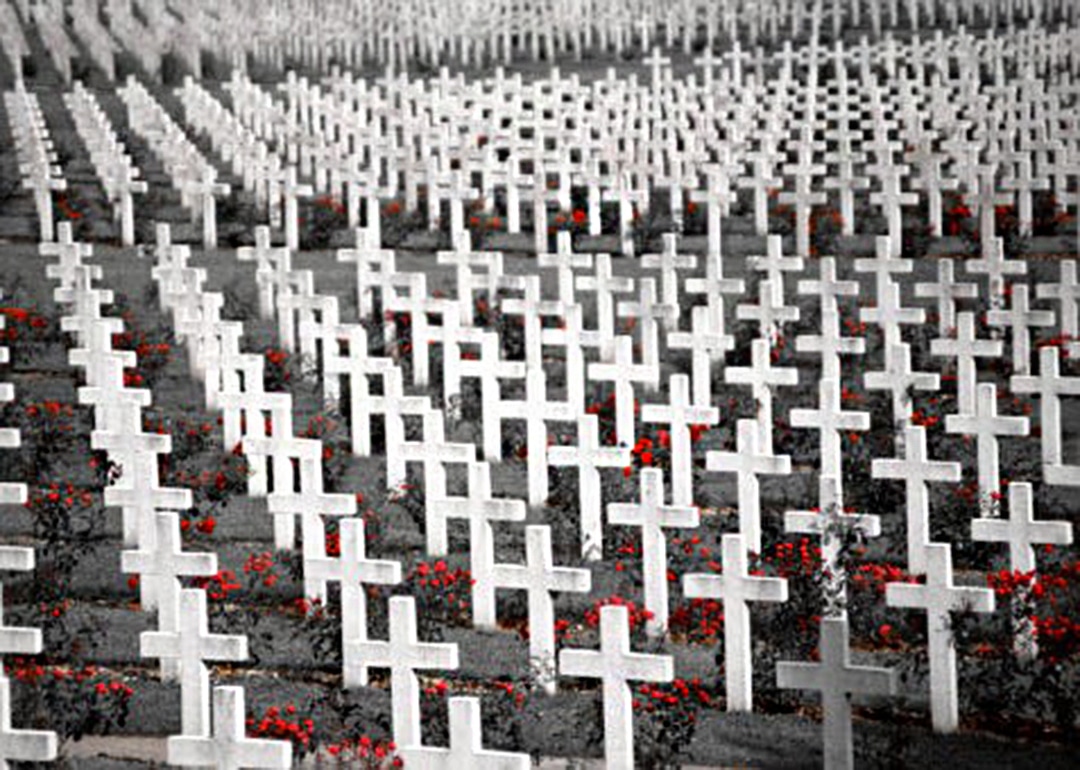
by Paul Cudenec | Feb 14, 2024
We are meant to believe that history unfolds randomly and chaotically. But, if we look closely, we can see certain repeating patterns reflecting the way in which major world events are frequently manipulated behind the scenes. As the drums of war grow louder in 2024, I present, by way of warning regarding the agenda concerned, this chapter from my essay on the history of the corrupt Rothschild empire.
There was a period in the 19th century when the Rothschilds gained a certain reputation for defending the peace in Europe, but with hindsight this appears to have been yet more expediency on their part.
When their self-interest in the form of their investments required stability, they were against the disruption caused by war, but this was never a moral principle.
Indeed, the whole success of their dynasty was founded on the way in which they exploited the opportunities presented to them by the wars that followed the French Revolution of 1789.
Ferguson writes that “the Rothschilds were presented with undreamed-of business opportunities by the revolutionary wars”, [60] while Bouvier defines the Rothschilds as “that family of merchants made rich by the long European war of 1792 to 1815”. [61]
According to historian Egon Caesar Corti, “it was in the profits made from war at that time that we can find the real origins of the subsequent enormous fortune of the House of Rothschild”. [62]
The Rothschilds made money out of war in a range of different ways, not all of which were entirely legal. “The disruption of established patterns of trade and banking created room for ambitious risk takers”, as Ferguson puts it. [63]
In their home city of Frankfurt they took advantage of food shortages and spiralling prices to operate on the black market and sold provisions to armies at a considerable profit. [64]
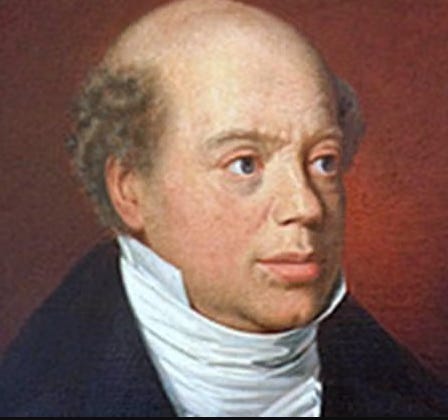
From 1808 onwards, Nathan Rothschild (pictured) exported English guineas to the continent. Ferguson describes this as a “lucrative line of business” [65] and Bouvier adds that “the profits were no doubt proportionate to the risks”. [66]
British goods, including cotton fabric, sugar, indigo and tobacco, were also transported across the Channel, via the Rothschilds’ warehouses, in defiance of Napoleon’s blockade. [67]
Close to Wilhelm IX, the Elector of HesseKassel, Mayer Amschel Rothschild was involved in his purchase of thousands of mercenaries to join the British-led fight against the French forces. [68]
Wars are expensive affairs and the financing has to come from somewhere. “As the scale and cost of the conflict between France and the rest of Europe rose, so too did the borrowing needs of the combatant states”, says Ferguson. [69]
“The defeat of France in the Napoleonic Wars had been financed to a large extent by British loans and subsidies to Austria, Russia and Prussia. With their establishments in Frankfurt, London and Paris, the Rothschilds had been in a uniquely good position to facilitate these transfers”. [70]
He says that their activities at this time ushered in a new era in financial as well as political history.
“The Rothschilds stretched their credit to breaking point, sometimes losing sight altogether of their assets and liabilities, gambling everything they owned for the sake of governmental commissions, interest payments and speculative gains from exchange rate and bond yield fluctuations. In 1815 alone, Nathan’s account with the British government totalled close to £10 million, a huge sum at that time”. [71]
Particularly striking is the way in which Nathan Rothschild used funds entrusted to him by Wilhelm IX as if it was his own capital, investing in hundreds of thousands of pounds worth of British government bonds and thereby securing the proximity to the British state for which his family is still known. [72]
The Rothschilds’ network of agents across Europe also famously enabled them to be the first in London to have news of Napoleon’s final defeat at Waterloo in 1815, which, says Bouvier, perhaps enabled Nathan Rothschild to pull off a spectacular coup at the Stock Exchange. [73]
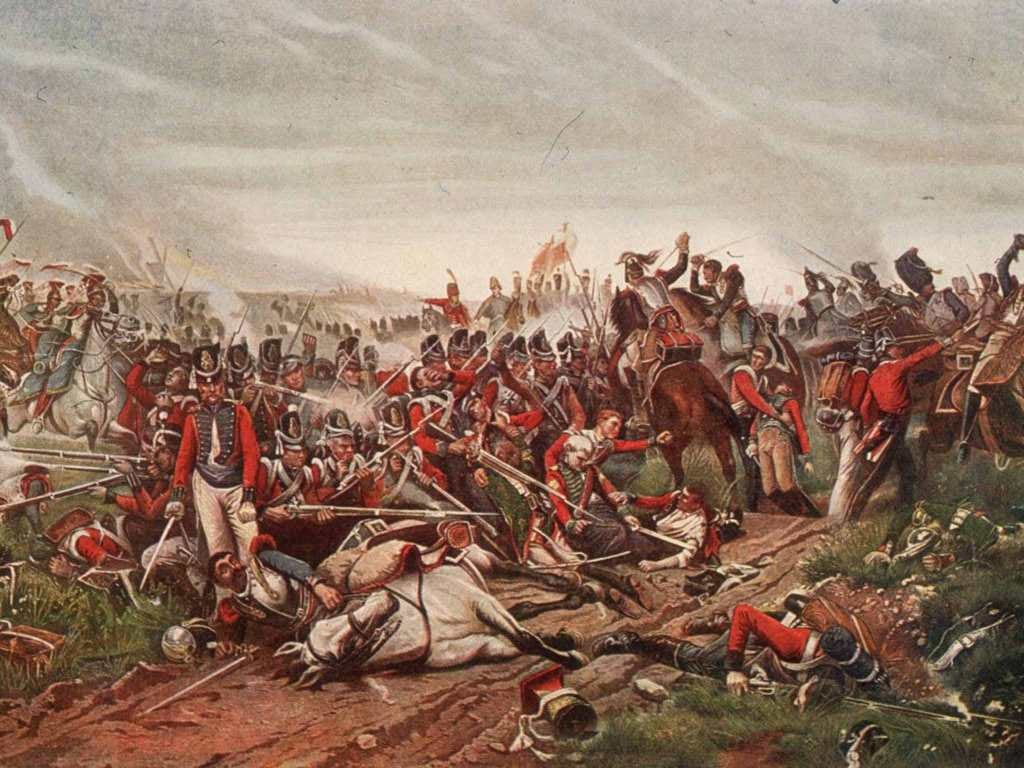
Writes Ferguson: “The Rothschilds emerged in 1815 as sterling millionaires. Almost at once, Nathan embarked on perhaps the most successful transaction of his career: a huge investment in British government bonds (consols) whereby he rode the upswing caused by the government’s postwar financial stabilization, taking his profits just before the market peaked. This was Nathan’s supreme Meistergeschäft, realizing profits of more than £250,000 at a stroke”. [74]
Financing wars became something of a speciality for the Rothschilds; they loaned £1 million to Brazil to fund its war with Argentina and Uruguay in 1851, for example. [75]
A couple of years later, they were back in action floating the British Government’s Crimean War Loan, [76] a reflection of the near monopoly enjoyed by Rothschilds over British war finance. [77]
Their involvement in this 1853-1856 conflict torpedoes the idea that they had a vested interest in maintaining the peace.
Ferguson insists: “Far from weakening the Rothschilds’ position, the Crimean War had precisely the opposite effect in that it emphatically reasserted the Rothschild houses’ primacy in the field of public finance.
“Indeed, it demonstrated that the Rothschilds had for years been exaggerating the financial dangers of war. In reality, wars – and especially short wars of the sort which characterised the period from 1854 to 1871 – created financial opportunities which they, with their distinctive multinational structure, were especially well placed to exploit”. [78]
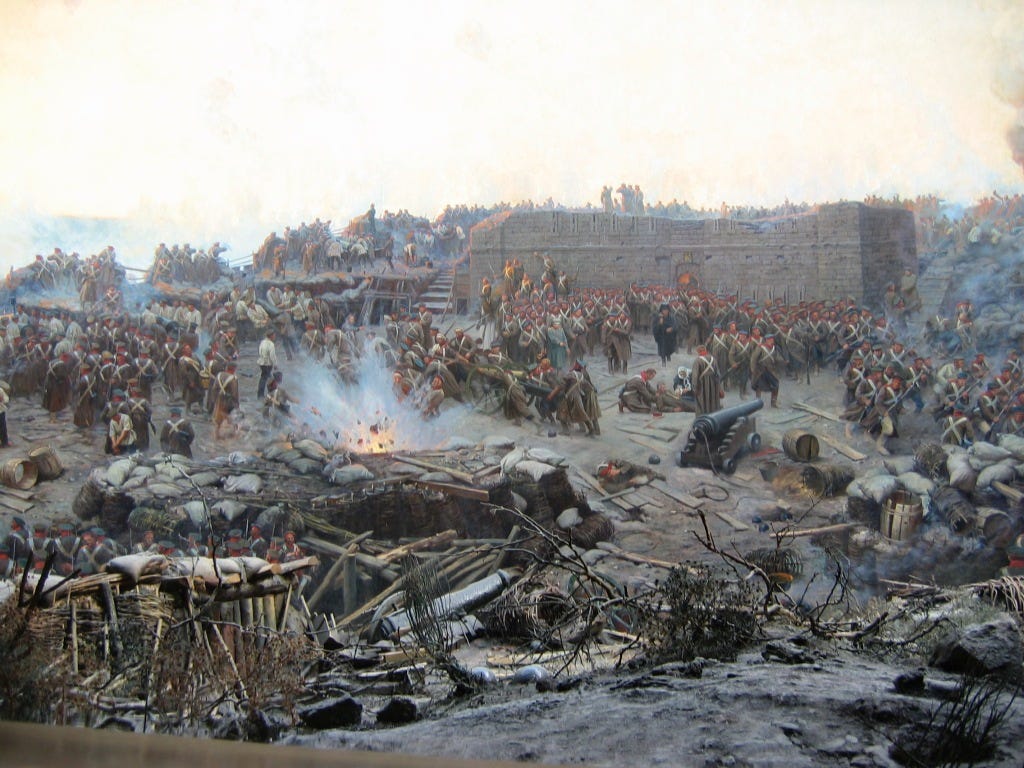
As well as lending Britain a total of £26 million for the Crimean War, which was added to the £782 million existing national debt subsequent to the Napoleonic Wars, [79] they also lent money to France and Turkey. [80]
While those two powers were both British allies in that conflict against Russia, between 1859 and 1870 the Rothschilds “would find themselves repeatedly on both sides of decisive conflicts which were to recast the map of Europe”, writes Ferguson. [81]
“The wars of the 1850s and 1860s were fought by states which were, by and large, strapped for cash; this more than anything else explains the importance of the role played by bankers in the period – and the substantial profits they could make”. [82]
He adds that their internal communications reveal that the Rothschilds “were calculating carefully to ensure that both sides in the conflict paid them for their financial services”. [83]
Ferguson stresses that it would be absurd to argue that there was no connection between the overall profitability of the period for the Rothschilds and the recurrence of military conflict.
“Far from damaging their position as the world’s leading multinational bank, the wars of the mid nineteenth-century generated unprecedented business for the Rothschilds, just as fifty years before it had been war which had set them on their way to fortune and notoriety”. [84]
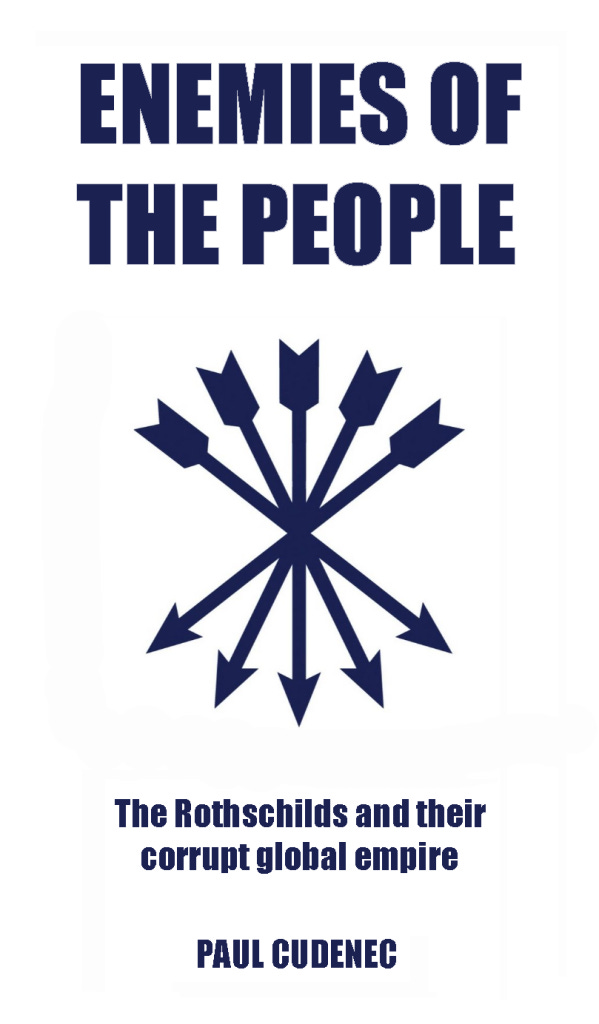
I will mention later the political Rothschild-linked machinations behind the outbreak of the Franco-Prussian War in 1870, but suffice to say here that they were involved with both sides and as a result their power in France and Europe was further enhanced. [85]
Having been lured into launching the war, which they lost, the French were landed with hefty reparations.
Of course, the Rothschilds were on hand to provide loans to the French state to pay off Prussia.
“It was, quite simply, the biggest financial operation of the century, and arguably the Rothschilds’ crowning achievement”, [86] writes Ferguson.
“As a percentage of GDP, French public debt was already 44 per cent in 1869, before the war, and 59 per cent in 1871, before most of the indemnity had been paid. So the total internal and external debt burden in 1871 was in the vicinity of 80 per cent of GDP”. [87]
It was an “immense risk” [88] for the Rothschilds in France to be identified with paying such large sums of money to Berlin, he adds, and it is “extraordinary” how little criticism was levelled at Alphonse de Rothschild for his “great operation”, as the family termed it. [89]
“Great racket” would be nearer the truth!
I have already described [90] the Rothschild connections to South Africa, where the Boer War of 1899-1902 was essentially a grab of gold and diamond resources for Rothschild interests including De Beers.
It is worth recalling that this conflict saw the first use of concentration camps, in which the families of Dutch-origin settlers were shockingly imprisoned.
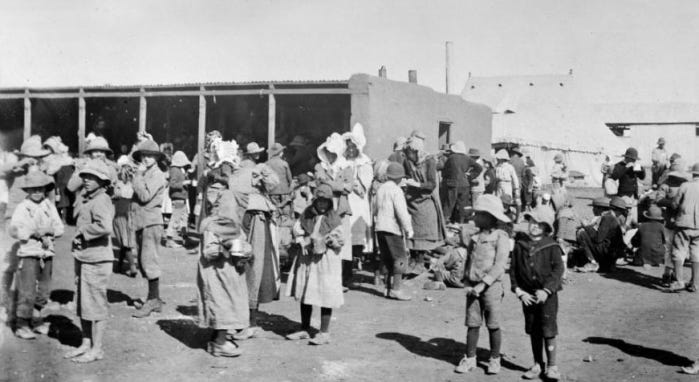
A few years later the Rothschilds semi-secretly helped finance the Japanese in their war against Russia in 1904-1906 and then openly loaned a further £48 million issue to help build back the post-war Japanese economy. [91]
They performed the same role on the other side of the conflict, when “Russian industry recovered spectacularly thanks to the Rothschilds and other international bankers who poured massive loans into the country”, [92] as Docherty and Macgregor note.
The Rothschilds’ role in the conspiracy to start and prolong the First World War is of utmost importance, but since I have already examined it in detail elsewhere, I will not repeat myself here.
I will simply remind readers that the Rothschilds and their associates were able to profit from the bloodbath in multiple ways – through loans to finance the war and subsequent “build back better” projects, yes, but also very directly through their heavy involvement in the arms trade.
One important player in this respect was wealthy international arms dealer Basil Zaharoff, deeply involved in both munitions and international politics at the time and “a Rothschild man”, in Docherty and Macgregor’s words. [93]
By 1914, Zaharoff sat on the boards of Vickers and Le Nickel, both Rothschild-financed and influenced. [94]
He would no doubt have agreed with James de Rothschild, who proudly told his nephews in 1866: “In a war there is money to be made from having money”. [95]
See also: A Crime Against Humanity: The Great Reset of 1914-1918

[60] Niall Ferguson, The House of Rothschild: The World’s Greatest Banker 1849-1998 (New York: Penguin, 2000), p. xxi.
[61] Jean Bouvier, Les Rothschild (Brussels: Editions Complexe, 1983), p. 14.
[62] Egon Caesar Corti, Les Rothschild, volume 1 (Paris: Payot, 1929) p. 31, cit. Bouvier, p. 23.
[63] Ferguson, p. xxii.
[64] Bouvier, p. 23.
[65] Ferguson, p. xxii.
[66] Bouvier, p. 41.
[67] Bouvier, p. 34.
[68] Bouvier, p. 25.
[69] Ferguson, p. xxi.
[70] Ferguson, p. 455.
[71] Ferguson, p. xxiii.
[72] Ferguson, p. xxii.
[73] Bouvier, p. 46.
[74] Ferguson, p. xxiii.
[75] Ferguson, p. 68.
[76] Ferguson, p. 40.
[77] Ferguson, p. 73.
[78] Ferguson, p. 72.
[79] Ferguson, p. 73.
[80] Ferguson, p. 75.
[81] Ferguson, p. 89.
[82] Ferguson, p. 94.
[83] Ferguson, p. 98.
[84] Ferguson, p. 94.
[85] Ferguson, p. 190.
[86] Ferguson, p. 205.
[87] Ferguson, p. 205.
[88] Ferguson, p. 209.
[89] Ferguson, pp. 211.
[90] Paul Cudenec, ‘A Crime against humanity: The Great Reset of 1914-18’, winteroak.org.uk, October 2022.
[91] Takahashi Korekiyo, The Rothschilds and the Russo-Japanese War, 1904-06), pp. 20-21 cit. Gerry Docherty and Jim Macgregor, Hidden History: The Secret Origins of the First World War (Edinburgh & London: Mainstream Publishing, 2013), p. 93.
[92] Jim Macgregor and Gerry Docherty, Prolonging the Agony: How the Anglo-American Establishment Deliberately Extended WWI by Three-and-a-Half Years (Walterville, OR: Trine Day, 2018), p. 442.
[93] Macgregor and Docherty, Prolonging the Agony, p. 331.
[94] Macgregor and Docherty, Prolonging the Agony, p. 331.
[95] Ferguson, p. 149.